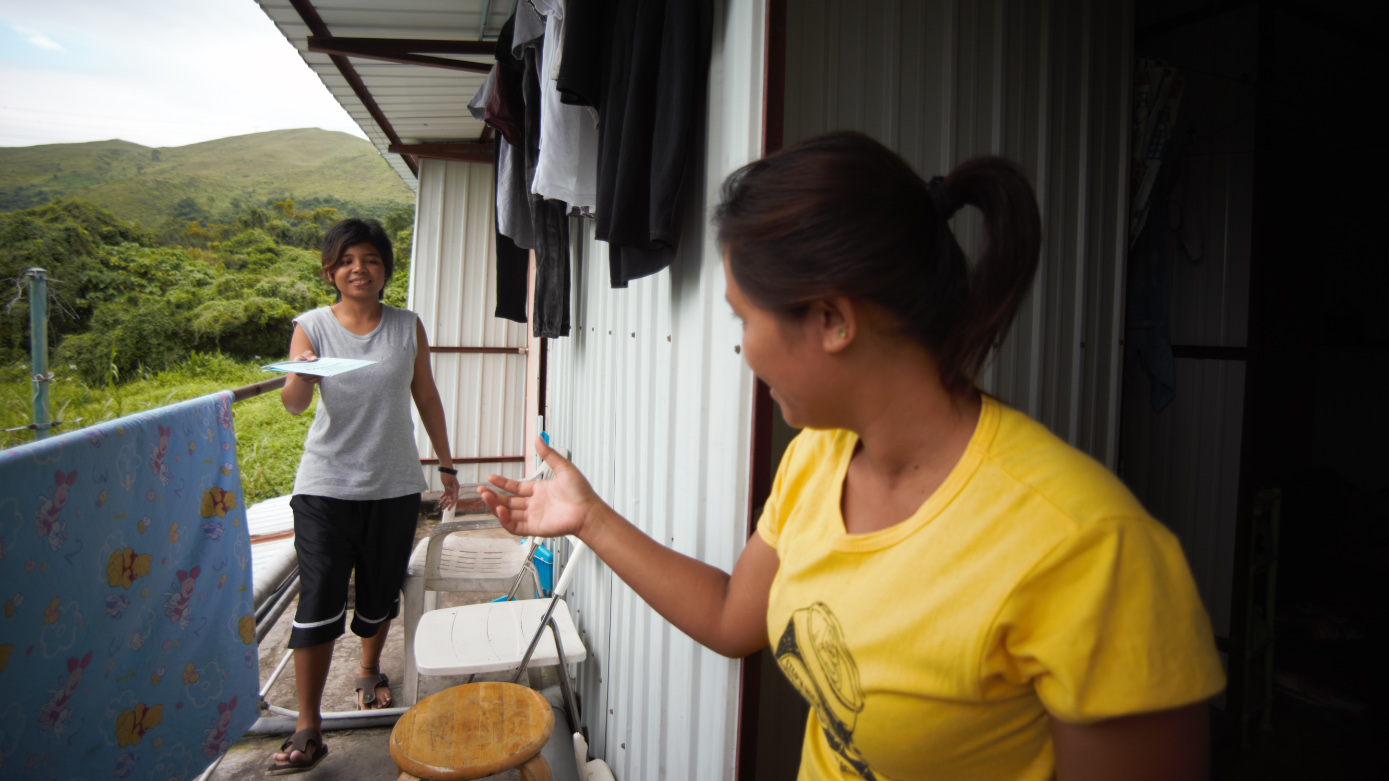
Case workers at ISS-HK fancy themselves Immigration officers in training. Instead of treating every client as a destitute asylum seeker without money or work rights, case workers tailor services according to nationality. By doing so they fail in their role as contractor for social welfare services.
The SWD instructions to ISS-HK concern “enhancing the humanitarian assistance for non-refoulement claimants” without consideration of nationality and previous immigration status. All protection claimants must be treated equally irrespective of how they arrived, or whether they work visa prior to seeking sanctuary.
Vision First is concerned about the prejudiced treatment of ex-Foreign Domestic Helper by ISS-HK case workers. To support this claim we offer a comparison between two African and two Indonesian ladies living together:
Example A: Two Somali ladies requested ISS-HK pay in full a shared 4000$ room in Kowloon. They state their claim pointing out that nothing cheaper was available, and they were banned from working. They met initial refusal with a promise of a sit-in until their non-negotiable request was met. And they got what they wanted!
Example B: Two Indonesian ladies requested ISS-HK pay in full a shared 3000$ room in a slum. They noted that the room was cheap and each could receive 1500$ rent assistance. Their case worker Tanya Tse refused to provide what they were entitled to. Tanya said, “It’s enough to give you 1400$ each. That is enough. Just sign and go!”
Tanya Tse also arbitrarily reduced the utility allowance from 300$ to 200$ each, despite the SWD clearly stating that, “300$ per month which may be used to meet different utilities charges (i.e. water, gas, electricity, etc.)”
Tanya Tse visited the room in illegal structures and signed an Agreement on Provision of Assistance bearing false information. Both Indonesian ladies were provide with ISS-HK agreements stating, “I confirm my address to be at Letter Box, XXX Shek Tong Tsuen, Au Tau”. Clearly two people cannot live inside a letter box!
Tanya Tse does not abide by the principle: “Treat other people the way you want to be treated.”
Vision First is deeply concerned about food problems at the ISS-HK appointed shops, New Bauddha and Safwan in Yuen Long. The quality problem is a shortcoming of the shops, though we understands that ISS-HK case workers are responsible for the quantity/selection problem. These issues must be addressed by the SWD:
- The rice is contaminated with excrement. A lady said, “The rice is very bad. Sometimes the rice is so smelly. Inside have shit. The rice is no good. When you finish cooking it becomes very smelly. Even if you wash very clean it is no good. All people are saying no good this rice … Everyone complain and asking how to solve this problem … Please ask them to change the rice. We cannot eat it!”
- Food selections are cut short. Milk, milk powder and Milo are not distributed despite being ticked on the order sheets. A lady complained, “If Tanya wants to give, she will give. If she doesn’t want to give, she will not give. It depends what she wants to give. Also, things like eggs and spices she never gives. I think that in one month I get 600$ [worth of foodstuff]. Sometimes she only gives onion too much and expensive food don’t give. Vegetables too much give because it is cheap. Milk, powder milk, Milo don’t give.”
- Cooking oil is insufficient despite what is selected on the forms. A lady explained, “I ask for cooking oil but only receive three small bottles a month. The very small bottles. We write the big one but they give the small one only. They give small one because it costs less money. How can we cook without oil?
- Basic toiletries, including detergent for clothes, must be distributed monthly as SWD pays ISS-HK for such provisions. Many refugee ladies share this complaint, “Sometimes they don’t give us toiletries. The shop doesn’t give every month. They give only one time in two months. The soap is not enough for us. They should give more as we need it to wash our clothes. We only get ONE toilet tissue roll each month. That is not enough for one month. If we cannot work how we buy toilet paper?”
- The food collection should be every 10 days. However, to save money over time, the ISS-HK shops progressively extend the frequency to as many as 15 days. The excuse of public holidays doesn’t hold up when distributing emergency rations to hungry people with no options. Distribution dates should be brought FORWARD, not pushed backward. A lady protested, “It is very bad, so we don’t have enough food and we are hungry. My food is not enough for 5 days. How can it last me for 15 days? They say we collect food every 10 days, but they lie. Now it is always 12 days or longer. And I don’t have any money …”
- These refugee ladies are intimidated by the male staff at the ISS-HK shops. If the ladies complain, the vendors shout back, “This is not your business. You ask your case officers. You are lucky we give you this!”It appears that these vendors believe they are engaged in charitable distribution. They forget that their bosses are paid tens of millions of dollars from the government purse to provide essential assistance to needy people. Would they speak like this to their Chinese customers?
- These refugee ladies get no redress from ISS-HK case workers. One explained, “We complain many times to Tanya and she just says, ‘Next time, next time.’ But [there is] never any change. Tanya doesn’t want us to complain. She said to me, ‘Don’t listen to what other people say. No need to complain too much!’


